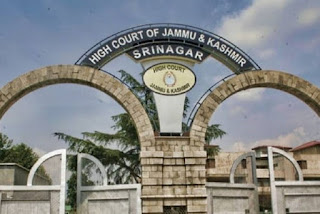Read Judgment
The Court noted that
Section 278, Cr.P.C. deals with procedure with regard to the evidence when it is completed and it states,
inter alia, that as the evidence of each witness taken under section 275 or section 276 of Cr.P.C. is completed, it shall be read over to him in the presence of the accused, if in attendance, or of his pleader, if he appears by pleader, and shall, if necessary, be corrected and it is further provided that if the witness denies the correctness of any part of the evidence when the same is read over to him, the Magistrate or Presiding Officer may, instead of correcting the evidence, make a memorandum thereon of the objection made to it by the witness and shall add such remarks as he thinks necessary.
The Bench observed that where the certificate of the Magistrate endorsed on the deposition sheet states that the deposition was read out to the witness and that the witness admitted it to be correct, the Court is bound to accept this as correct under
Section 80 of the Evidence Act until it is proved to be untrue. Before a deposition is closed, a witness is given an opportunity of explaining and correct any contradictions which it may contain and the statement that the witness finally declares to be the true one and that statement only must be taken to be the statement that the witness intended to make.
It was further held that all the Courts whether civil or criminal have an obligation to read over the deposition to the witness before he is called upon to affix the signature. Having regard for the statutory mandate, the Court observed,
"…after his cross-examination is over, he was asked to go through his deposition sheet and put his signature on each page of the deposition sheet, he never raised any objection about of any wrong recording. The contention of the learned counsel for the petitioner that everything was done in a hurried manner and the petitioner could not get time to go through the evidence minutely and therefore, the evidence should be corrected is not acceptable. The correction, which has been sought in the evidence is completely different from what evidence has been recorded. Therefore, it would be too risky to allow further examination of the petitioner as D.W.1 and permit him to make corrections in the evidence already recorded."
Before concluding, however, the Court made it clear that if any new fact is there with the petitioner to be deposed to prove his case which he has inadvertently left out, his counsel can file an application for recall of petitioner to depose only those aspects and in the recall petition, specific questions likely to be put to D.W.1 should be mentioned and the same shall be considered by the Trial Court and if it is found to be relevant, just and proper.













1_meghalaya-high-court-1.jpg)